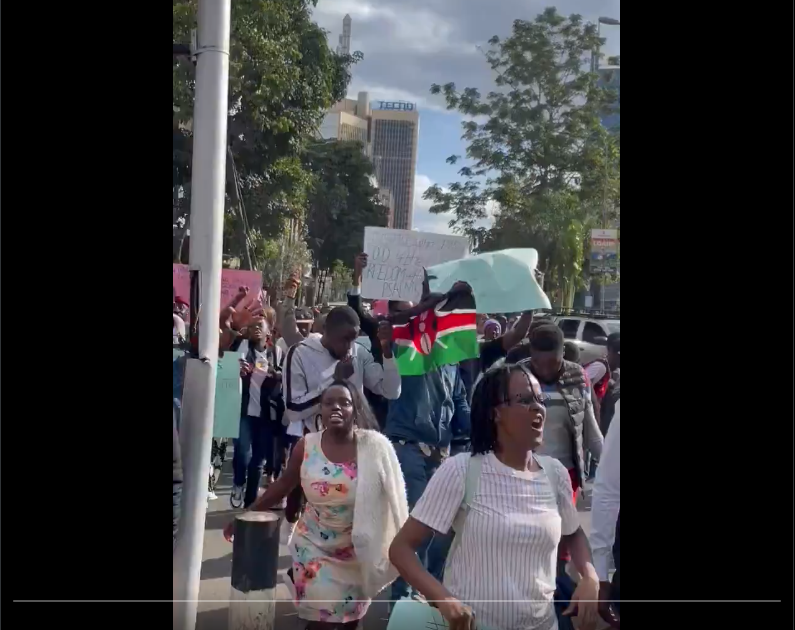On a sunny Sunday afternoon, the tranquil atmosphere typically associated with post-church activities was shattered as a wave of youthful energy surged down Kenyatta Avenue in Nairobi. Gen Z, fresh from their church services, took to the streets in an unanticipated show of unity and defiance, protesting against the contentious finance bill. The police, unprepared for the sheer number and organization of the protesters, found themselves scrambling to manage the situation.
The demonstrators, predominantly young Maasai, were a vivid tapestry of cultural pride and modern activism. Dressed in traditional shukas alongside contemporary attire, they carried placards with bold slogans denouncing high taxation and demanding economic reforms. Chants of “No more taxes!” and “We need justice!” reverberated through the air, creating a powerful chorus of dissent that echoed through the city’s heart. This unexpected protest highlighted the deep-seated frustrations of a generation that feels increasingly marginalized by the government’s economic policies.
The choice of Kenyatta Avenue as the protest site was symbolic. As one of Nairobi’s main thoroughfares, it is a bustling center of commerce and government, making it an ideal stage for the demonstrators to ensure their message was heard loud and clear by both the public and policymakers. The strategic timing, right after church services, underscored the protesters’ intent to rally support from a broad demographic, including those who might not typically engage in political activism.
Despite the initial surprise, the police quickly mobilized, forming barricades and attempting to disperse the crowds. However, the protesters were resolute, employing non-violent tactics and maintaining discipline to prevent any escalation into chaos. Their peaceful approach not only highlighted their maturity and organizational skills but also garnered sympathy and support from passersby and onlookers, many of whom joined in solidarity or voiced their approval from the sidelines.
Watch Video
The protest on Kenyatta Avenue marks a significant moment in the evolving political landscape of Kenya. It is a testament to the rising political consciousness and activism among Gen Z, who are no longer content to remain passive observers of policies that directly impact their future. Their willingness to challenge authority and demand accountability reflects a broader trend of youth empowerment and engagement across the country. As the government grapples with these burgeoning movements, it becomes increasingly clear that the voices of young Kenyans, especially those from marginalized communities like the Maasai, can no longer be ignored.


